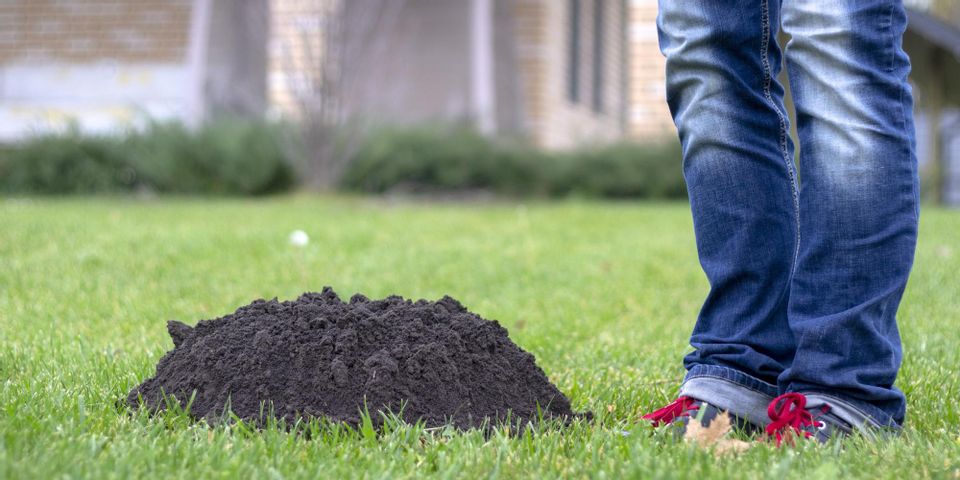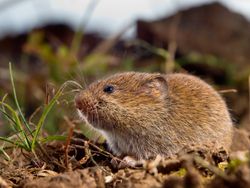What Are the Differences Between Moles & Voles?

Moles and voles are both known for causing unsightly landscaping damage. However, although they’re often mistaken for one another, they’re very different pests. It’s important to make the distinction, so you can identify which has invaded your property and determine the most appropriate wildlife control measures to take.
How to Differentiate Moles From Voles
Appearance
Moles have small, round bodies, pointed snouts, and large, webbed paws for digging. Since they spend most of their time underground, their tiny eyes and ears are almost entirely covered by fur to help keep dirt out.
Voles are rodents and resemble mice but have plumper bodies, shorter tails, and smaller ears and eyes. Their front feet are short with skinny claws that make it easy for them to hold onto various types of vegetation.
Diet
 Moles maintain a carnivorous diet, which means they’re attracted to food sources such as adult insects, worms, and grubs. Thus, they’re unlikely to eat your plants. On the other hand, voles are herbivores and prefer to feed on vegetation, so they’ll consume plant roots, bulbs, seeds, and even tree bark. Unfortunately, because they frequently eat underground, a vole infestation can be challenging to detect until your plants have already started dying.
Moles maintain a carnivorous diet, which means they’re attracted to food sources such as adult insects, worms, and grubs. Thus, they’re unlikely to eat your plants. On the other hand, voles are herbivores and prefer to feed on vegetation, so they’ll consume plant roots, bulbs, seeds, and even tree bark. Unfortunately, because they frequently eat underground, a vole infestation can be challenging to detect until your plants have already started dying.
Tunneling Activity
Moles burrow into the ground and dig networks of tunnels right below the surface. In doing so, they push excess dirt back up, creating volcano-shaped mounds across the landscape. This ruins lawns, causes drainage problems, kills plants, and leaves holes that can become safety hazards.
Voles travel above ground and will also use the tunnels made by moles. When moving throughout an area, they dig shallow tunnels on the landscape’s surface, which produces well-worn paths along their routes and leaves lines of dead grass behind.
Preventative Strategies
The best way to prevent mole and vole damage is to make your property less inviting to them. For moles, this means controlling the number of grubs in your yard, so they have to look elsewhere for food. To keep voles away, stay on top of weeding and lawn mowing. If you already have an infestation, a wildlife control company will know the proper strategies for trapping and removing them from your property.
If you’re having trouble with moles or voles in your yard, turn to Urban Wildlife Control in Roswell, GA. They can provide an efficient and affordable solution to help restore the health and beauty of your lawn. For nearly two decades, these wildlife control experts have offered safe and humane removal techniques for a wide variety of pests. Call (678) 493-7194 to schedule an inspection, or visit them online for more information on their wildlife control services.
About the Business
Have a question? Ask the experts!
Send your question

